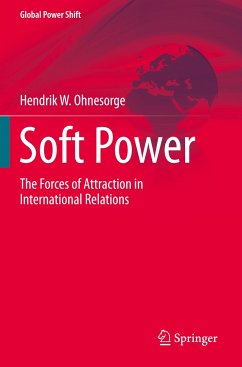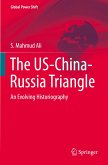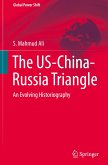This book explores the phenomenon of soft power in international relations. In the context of current discourses on power and global power shift s, it puts forward a comprehensive taxonomy of soft power and outlines a methodological roadmap for its empirical study. To that end, the book classifies soft power into distinct components - resources, instruments, reception, and outcomes - and identifies relevant indicators for each of these categories. Moreover, the book integrates previously neglected aspects into the concept of soft power, including the significance of (political) personalities. A broad range of historical examples is drawn upon to illustrate the effects of soft power in international relations in an innovative and analytically differentiated way. A central methodological contribution of this book consists in highlighting the value of comparative-historical analysis (CHA) as a promising approach for empirical analyses of the soft power of different actors on the international stage. By introducing a comprehensive taxonomy of soft power, the book offers an innovative and substantiated perspective on a pivotal phenomenon in today's international relations. As the forces of attraction in world politics continue to gain in importance, it provides a valuable asset for a broad readership.
This book was the winner of the 2021 ifa (German Institute for Foreign Cultural Relations) Research Award on Foreign Cultural Policy.
"In this important and thoughtful book, Hendrik Ohnesorge explains and advances our knowledge of the ways that soft power, public diplomacy, and charismatic personal diplomacy are shaping the international relations of our global information age."
Joseph S. Nye, Jr., Harvard University and author of The Future of Power
This book was the winner of the 2021 ifa (German Institute for Foreign Cultural Relations) Research Award on Foreign Cultural Policy.
"In this important and thoughtful book, Hendrik Ohnesorge explains and advances our knowledge of the ways that soft power, public diplomacy, and charismatic personal diplomacy are shaping the international relations of our global information age."
Joseph S. Nye, Jr., Harvard University and author of The Future of Power
"The book is highly recommended as it is thought-provoking, well-researched and a good production. For those researching international relations, political science, development and governance studies, the volume offers useful information and insights." (Saleh Shahriar, Chinese Political Science Review, Vol. 7 (4), 2022)
"The book is a good starting point for anyone who is interested in studying soft power and its application in the empirical reality of IR. The book succeeds in bringing a more structured approach to the concept of soft power and summarizes well the debate to date." (Hanna T. Tuominen, The Hague Journal of Diplomacy, Vol. 17, 2022)
"This well-written study gives a good overview of the concept of soft power and useful guidance for its application. Therefore, it is safe to assume that this book will appear in reading lists and will be citated in the relevant literature for years to come." (Thomas Froehlich, International Affairs, Vol. 97 (2), 2021)
"The book is a good starting point for anyone who is interested in studying soft power and its application in the empirical reality of IR. The book succeeds in bringing a more structured approach to the concept of soft power and summarizes well the debate to date." (Hanna T. Tuominen, The Hague Journal of Diplomacy, Vol. 17, 2022)
"This well-written study gives a good overview of the concept of soft power and useful guidance for its application. Therefore, it is safe to assume that this book will appear in reading lists and will be citated in the relevant literature for years to come." (Thomas Froehlich, International Affairs, Vol. 97 (2), 2021)








